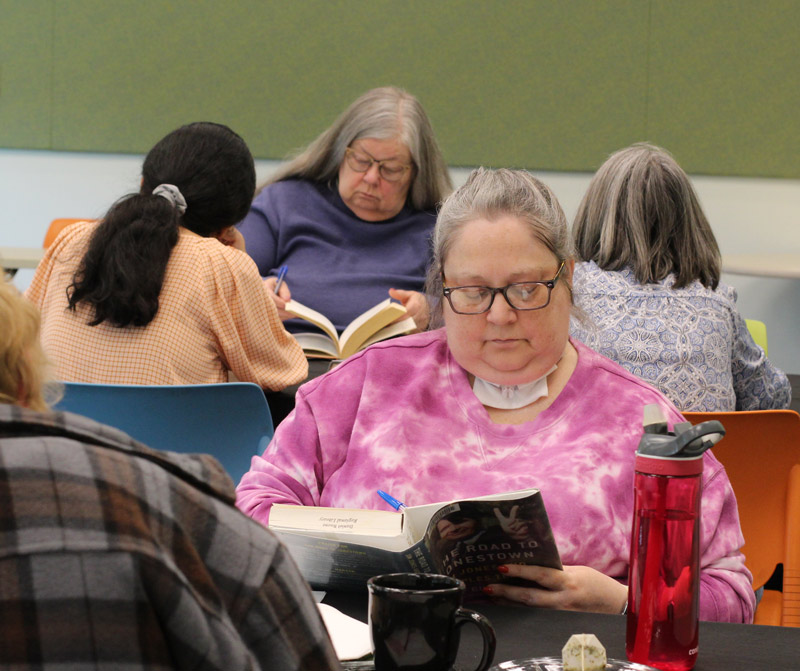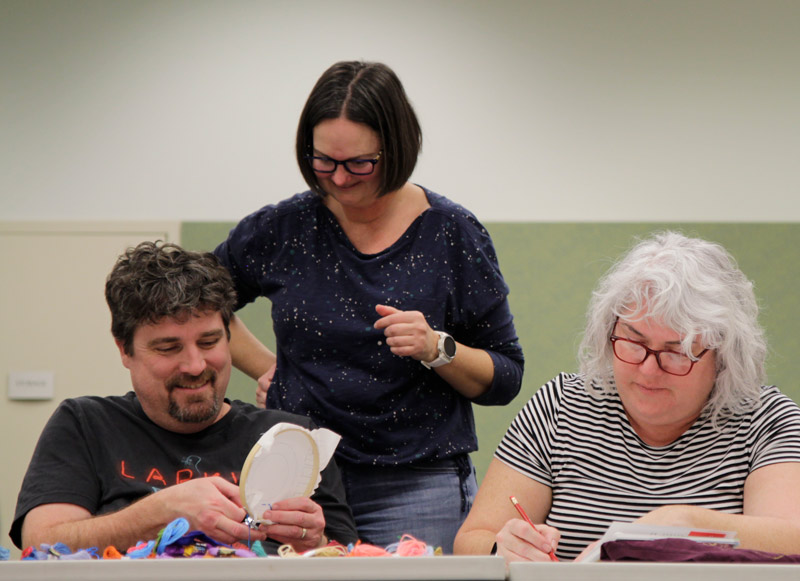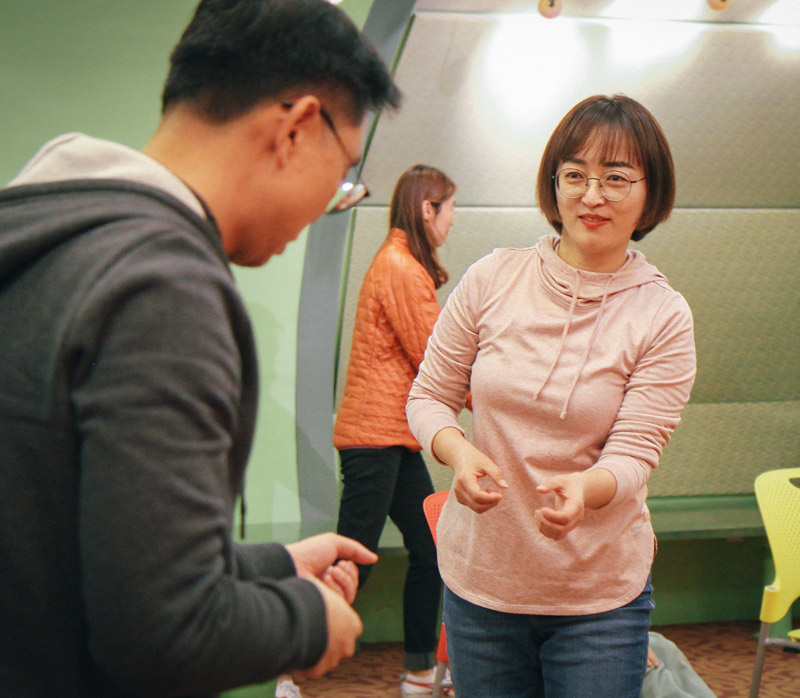Many of us may be wondering how we can keep ourselves mentally sharp throughout our lives. Fortunately, there are many things you can do with only a little extra effort and at low or no cost.
 READ
READ
All the sources reviewed for this article listed reading as one way to keep your mind active. (We library workers love that!) Reading facilitates communication between different sections of your brain and can create new neurons in the brain. Since reading requires mental effort and concentration, this activity leads to improved memory and concentration.
Does it matter what you read? Neuroscientist Kristen Willeumier, Ph.D. has found that reading a book for 15 to 30 minutes a day benefits your brain, whether you enjoy romance novels, biographies or other genres. A study by Yale School of Public Health, using data from the Health and Retirement Study at the University of Michigan, concluded that frequent readers had better memories and mental abilities than others, with those who read literary fiction seeing a greater benefit than those who read other materials like newspapers, magazines or other book genres.
Listening to an audiobook also benefits the brain, though in different ways. Dr. Willeumier says what matters more is how complex the plot is. “Ultimately, whether you prefer to acquire information through listening to an audiobook or reading a written text, it is the content of the information that requires higher-level cognitive processing in the brain,” she says.
No matter what you like to read, you can borrow print books, eBooks and audiobooks for free from the library.
 SOCIALIZE
SOCIALIZE
If you’ve lost touch with friends, like many of us did during the pandemic, get reconnected or find new ways to connect with others. A recent study published in Social Science & Medicine revealed that people with “high engagement with social groups such as book clubs and community organizations performed better on tests measuring cognitive skills such as working memory,” according to Erica Westly writing for Scientific American. Several studies draw the same conclusion. Why group interaction improves brain health is still being studied, but some neurologists suggest that spending time with others causes us to use our brains more than most other activities because we’re taking in and processing so much information from all our senses and forming new neural connections.
We invite you to attend some of the free programs at the library as a great way to expand your social network. Attend a book discussion, take a class or enjoy one of our music concerts. Pick up a copy of “At Your Library” or view a current list of library events at www.dbrl.org/events.
 LEARN SOMETHING NEW
LEARN SOMETHING NEW
Challenge your brain with new information to keep it active and to maintain mental acuity. When you consider what new endeavor you want to pursue, keep in mind the study conducted by neuroscientist Dr. Denise Park that pointed to greater gains in brain function among those who learned new and more challenging tasks. Other researchers believe that such activities may stimulate new connections between nerve cells and generate new ones.
So continue doing what you love, but dig in more deeply or try a completely new challenge that fully engages your mind.
The library offers you many free opportunities to learn something new. Get started this week by attending an in-person class at the library or using a free online learning resource through our digital branch, www.dbrl.org. Look through Creativebug for arts and crafts projects. Log into LinkedIn to learn about technology, photography, videography or graphic design. Check out Universal Class for a wide selection of classes, some pure fun and others more serious.
Learn more about what you can do for brain health on reliable websites like www.geisinger.org, www.mayoclinic.org, www.health.harvard.edu, to name a few, and find resources through your library. As a companion to this article, we’ve put together a book list to get you started.
